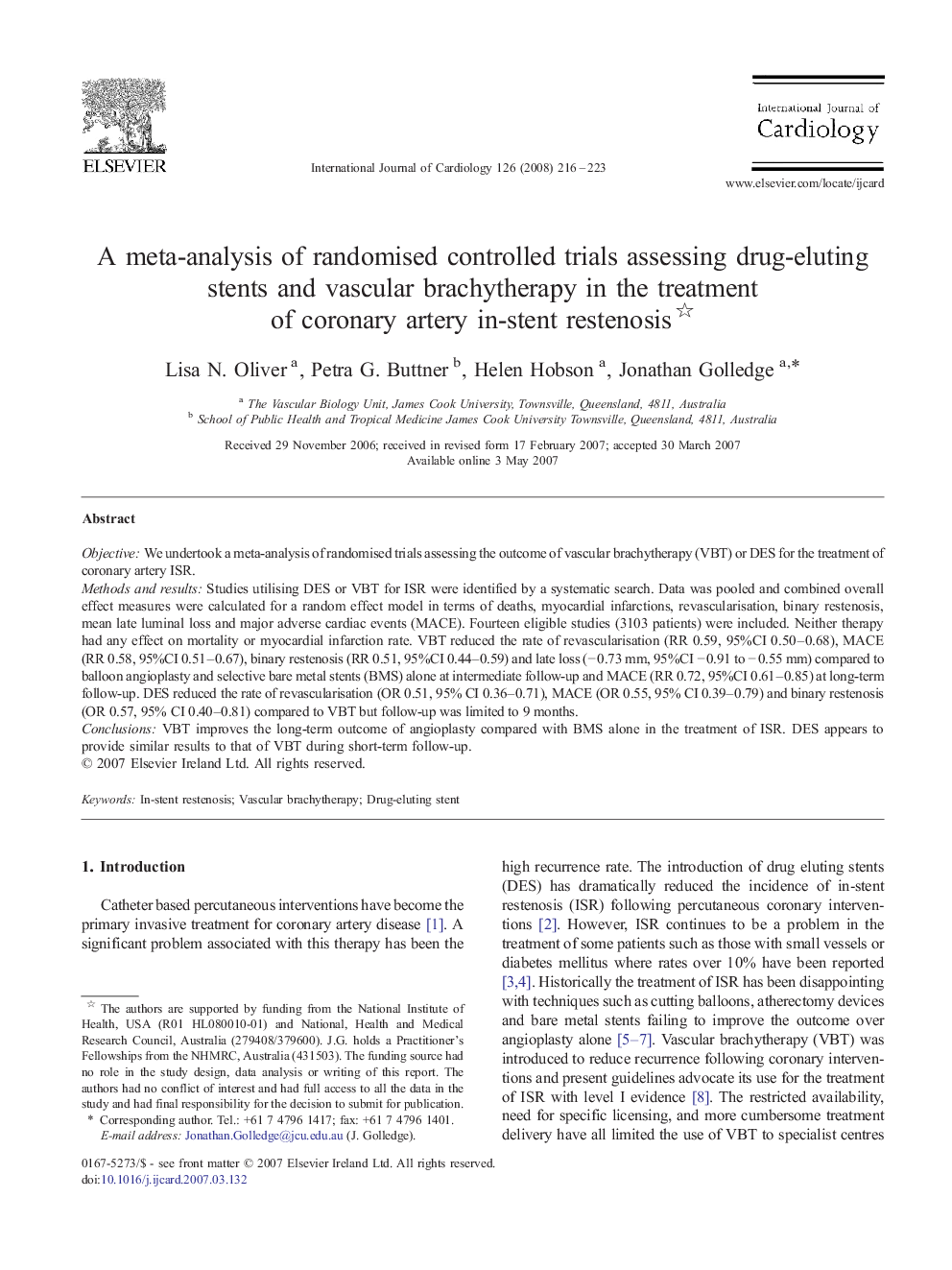| Article ID | Journal | Published Year | Pages | File Type |
|---|---|---|---|---|
| 2933787 | International Journal of Cardiology | 2008 | 8 Pages |
ObjectiveWe undertook a meta-analysis of randomised trials assessing the outcome of vascular brachytherapy (VBT) or DES for the treatment of coronary artery ISR.Methods and resultsStudies utilising DES or VBT for ISR were identified by a systematic search. Data was pooled and combined overall effect measures were calculated for a random effect model in terms of deaths, myocardial infarctions, revascularisation, binary restenosis, mean late luminal loss and major adverse cardiac events (MACE). Fourteen eligible studies (3103 patients) were included. Neither therapy had any effect on mortality or myocardial infarction rate. VBT reduced the rate of revascularisation (RR 0.59, 95%CI 0.50–0.68), MACE (RR 0.58, 95%CI 0.51–0.67), binary restenosis (RR 0.51, 95%CI 0.44–0.59) and late loss (− 0.73 mm, 95%CI − 0.91 to − 0.55 mm) compared to balloon angioplasty and selective bare metal stents (BMS) alone at intermediate follow-up and MACE (RR 0.72, 95%CI 0.61–0.85) at long-term follow-up. DES reduced the rate of revascularisation (OR 0.51, 95% CI 0.36–0.71), MACE (OR 0.55, 95% CI 0.39–0.79) and binary restenosis (OR 0.57, 95% CI 0.40–0.81) compared to VBT but follow-up was limited to 9 months.ConclusionsVBT improves the long-term outcome of angioplasty compared with BMS alone in the treatment of ISR. DES appears to provide similar results to that of VBT during short-term follow-up.
